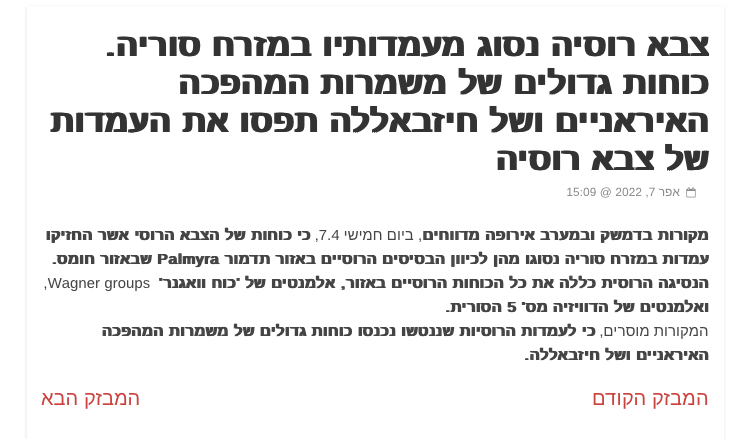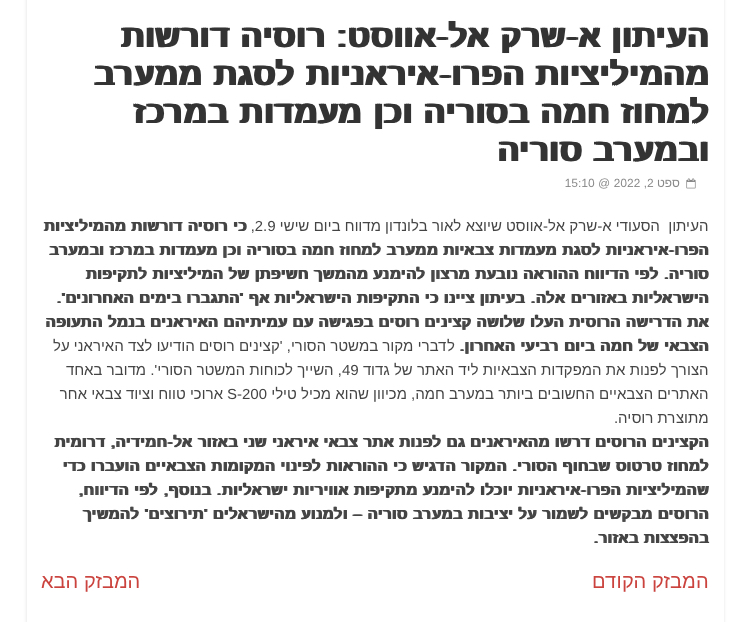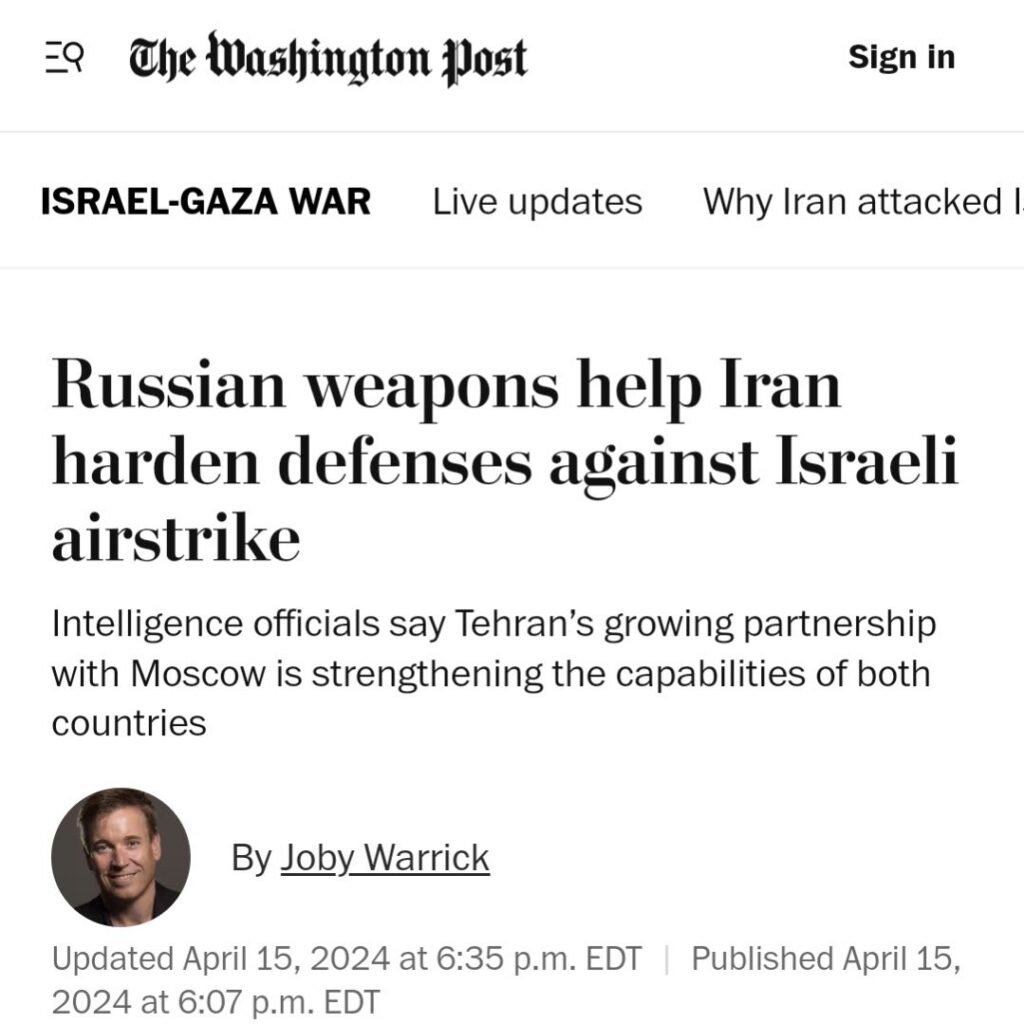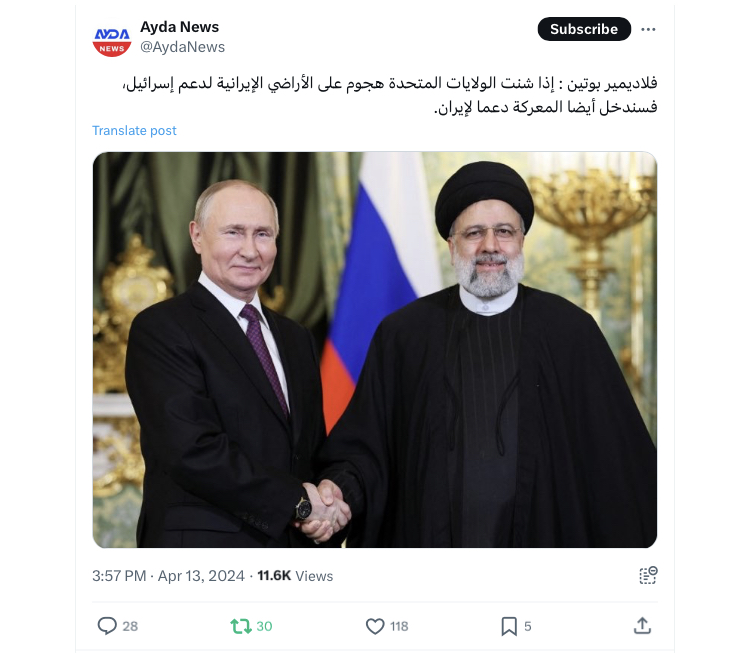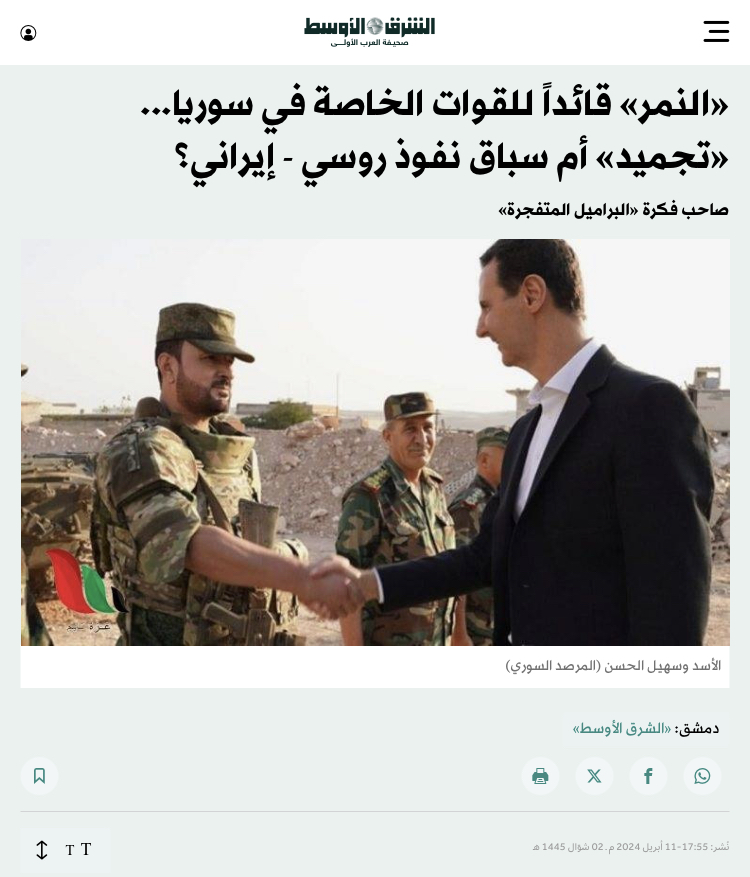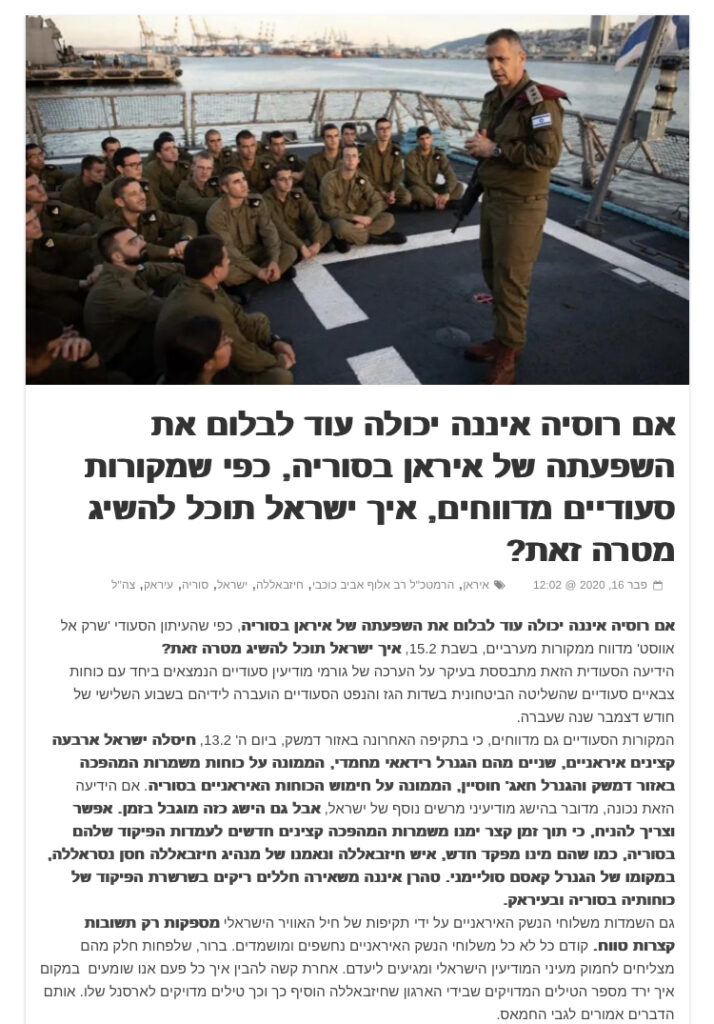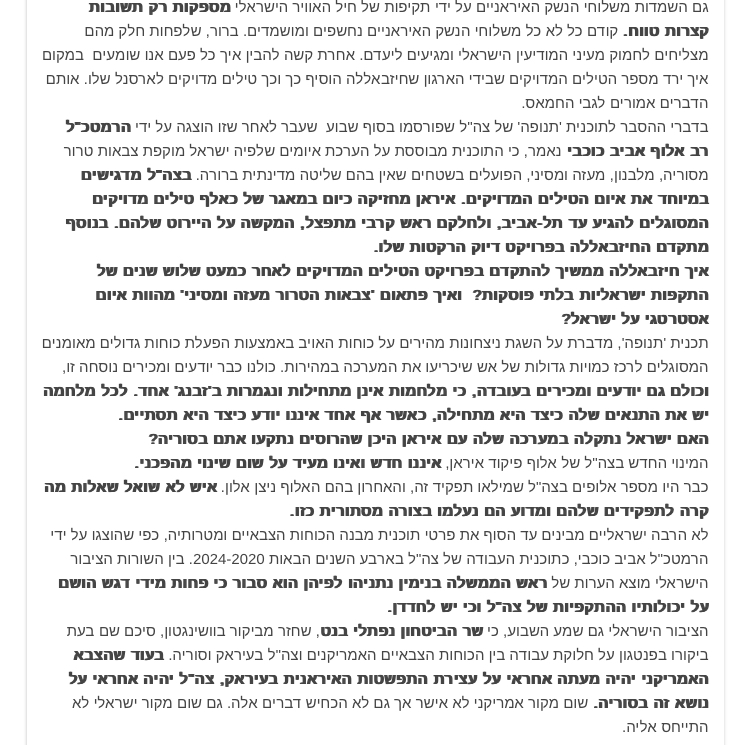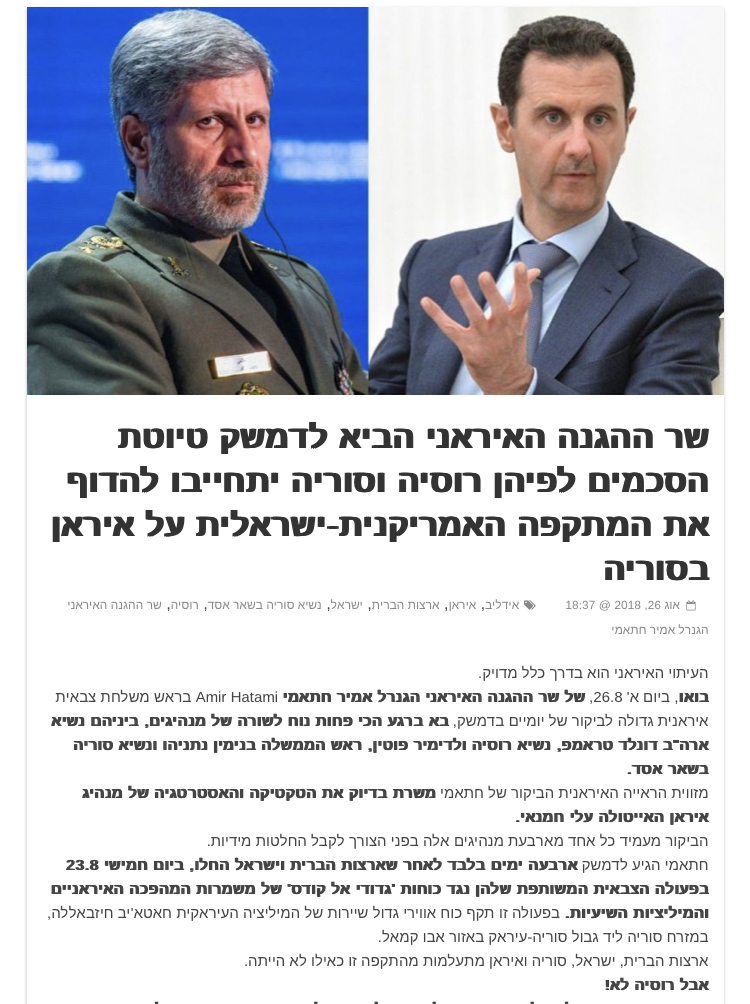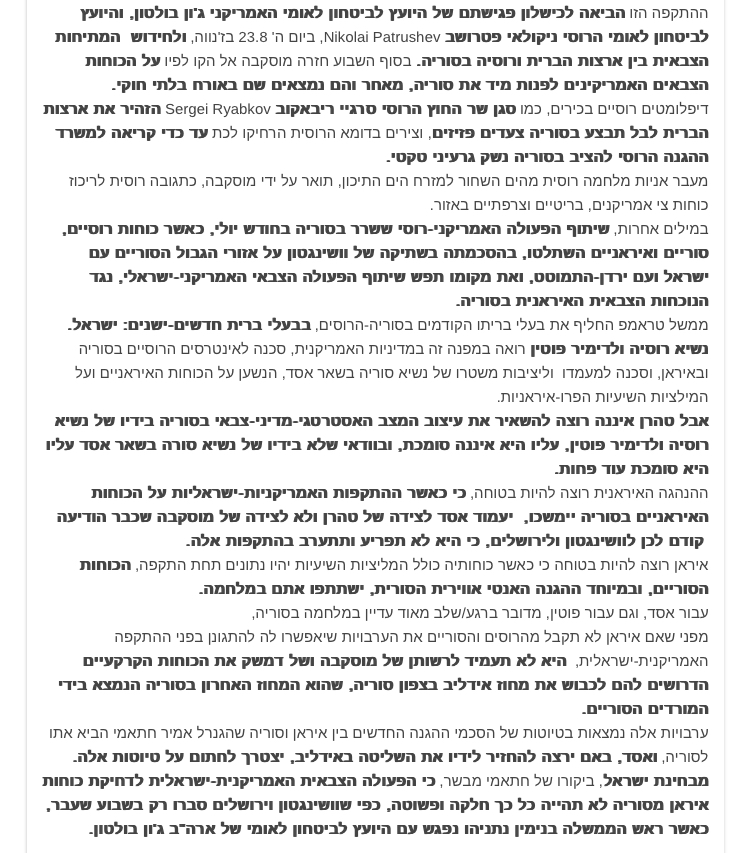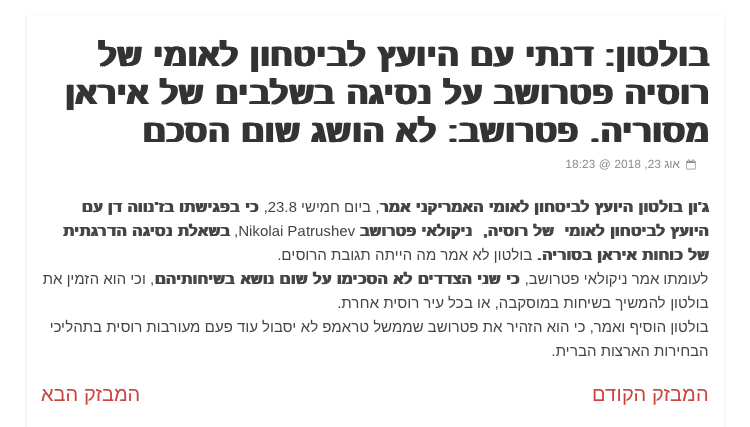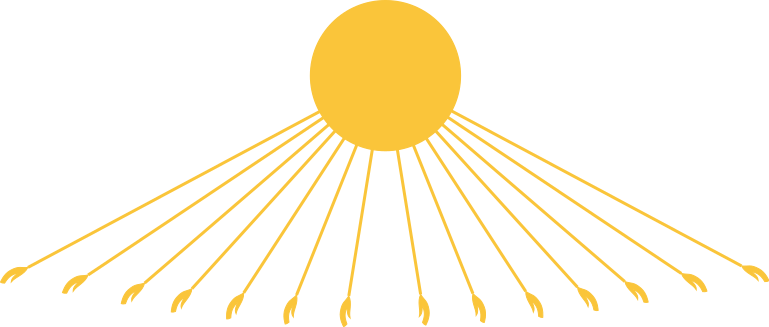The following draft will be updated tomorrow.
- The ISW has repeatedly claimed that Russia is tied at the hip with Iran. However, there is little to no evidence to support such a claim. In Syria, Russia appears to be increasingly ready to minimize, sideline, distance, or eliminate Iranian influence in the country and there are a number of examples, many of which exist in Hebrew and Arabi , where the Russians have sought to ensure the execution of their strategy for Syria above and beyond Iran.
- A less persuasive though nonetheless noticeable advancement shortly after Russia successfully defended Syria from internal strife following the subversion of its response to the Arab Spring is the fact that Assad is actively building relations with China, a policy the Russians appear to be advancing.
- A consequence of Iran’s failure to provide Syria with the military support Assad required prior to Russia’s arrival in 2015 and perhaps precipitating Assad’s decision to go all in with Russia over Iran is that Iran 1) could not accomplish a military objective related to the Syrian civil war, 2) could not provide Syria with the ground troops, attack vehicles, tanks, helicopters, or air craft that Assad required to repel entrenched anti-Assad factions or Sunni Islamic terrorists organizations, and 3) could not assist with security in the capital of Damascus in the way that Russia was able to. The consortium of these aspects of Iran’s performance as a military in support of the Assad regime necessarily degraded the image of Iran as a protectorate, elevated Russia’s ability to continue to protect the Assad regime, the capital and the Syrian armed forces, and led to a situation in which Iran could not wield and was no longer in a position to exert a dominating influence over the embattled Assad regime and protect its political, religious Alawite or military institutions. \
- Russia is not in a position to concede power in Syria to Iran in a way that would reverse the overall outcome of the Syrian civil war; Russia is interested in a Syria that is not an Iranian dominated protectorate, and Russia is executing a strategy for Syria does not depend upon nor require Iran or the Iranian military to do anything but follow suit and nothing in Iran’s performance during the past decade provide leverage to the contrary.
- It is thus incorrect and unprecedented that the ISW claims that the United States ‘cannot drive a wedge’ between Russo-Iranian relations and there is no such thing is an air tight diplomatic relation, especially in a globalized economy of competing nation states and the competition for a dominating influence in Syria between Russia and Iran is a clear demonstration of this fact. The ISW’s ahistorical analysis, which leans on an understanding of Russo-Iranian relations in thea absence of an analysis of the most significant benchmark of diplomatic, societal, political, or military contention in the past decade thoroughly undermines the claims their report makes.
- Furthermore, the Russia relies almost exclusively on the Assad model as a diplomatic, political, and historical model for persuading African countries to concede a dominating influence in their country and offer the model as a guarantee that come hell and high water, no nation may overthrow African partner government, as the Assad model can be cited as proof to the contrary. The Assad model notably relies upon nothing at all from Iran and is based almost exclusively upon Iran’s exclusion and is not mentioned in any of the negations with African countries as a way to demonstrate the model’s geopolitical sanctity.
- To make a long story short, Russo-Iranian relations are almost entirely asymmetrical. Although Russia initially entered into a military cooperation and has extended that cooperation in various ways (i.e., the joint electricity grid), Russia has entered into expanded military cooperation with many countries, including many African countries. The Cradle, a pro-Israeli media outlet managed by members of the American intelligence commnunity, for instance, published a map detailing the number of African countries associated with the recent establishment of Russian military contracts. It is a large number. There is little reason without a thorough comparative analysis to claim that Russia’s expanded military cooperation with Iran is unique and in multiple ways supersedes any of those consecrated in an African country. It is an unqualified claim. Nonetheless, Iran depends upon Russia more than Russia upon Iran and this is a defining characteristic in many case common to and a part of the expanded military contracts Russia maintains with African countries. While Iran is an Eurasian partner on the continent and its proximity to Russia puts it on par with China, Mongolia and Kazakhstan, these countries maintain an independence from Russia and none are joined at its hip. t
